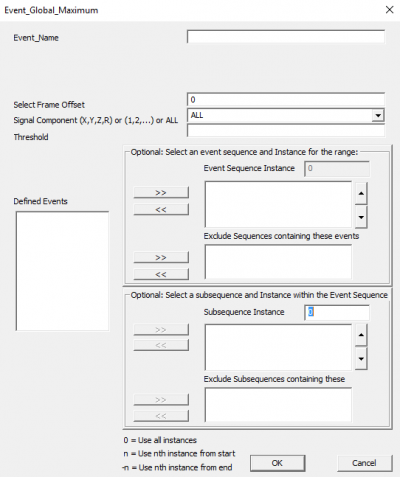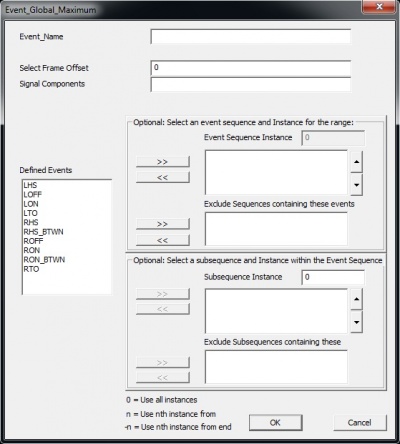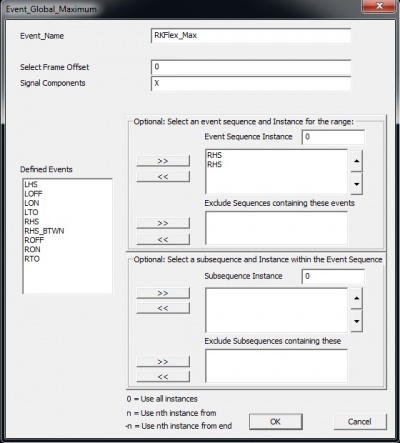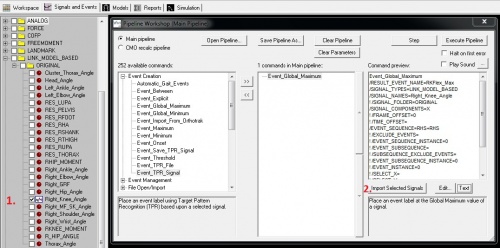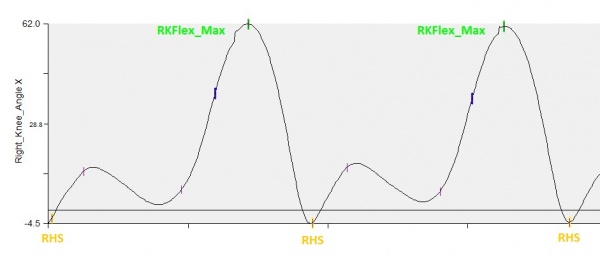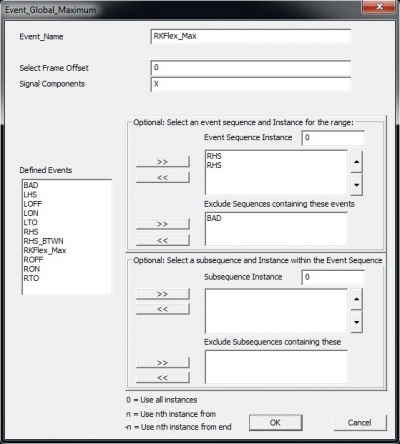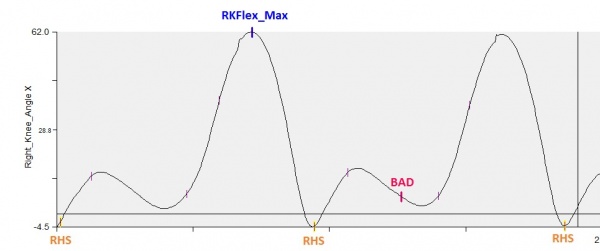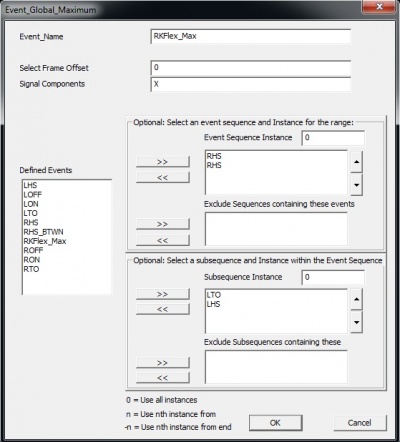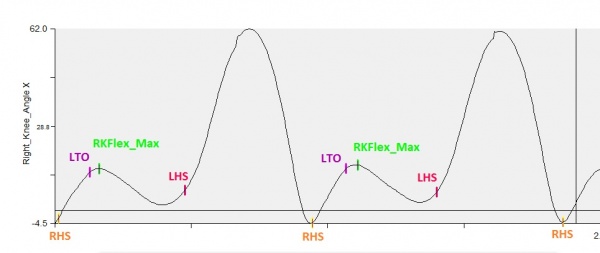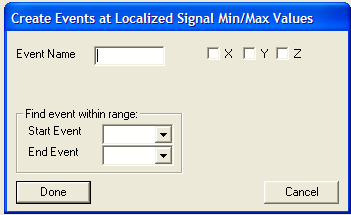Event Global Maximum
| Language: | English • français • italiano • português • español |
|---|
Specify an Event Label(s) at the Global Maximum of a signal.
The result will be one maximum value over the range.
If the local maxima are needed, see the Event_Maximum command
To review the difference between local and global maximum values please see
here.
Version 6
The Event_Global_Maximum command may be used to place an event at the Global maximum value of a signal. If Threshold has a value or expression only global maximum greater than the threshold will be identified.
Version 5
The Event_Global_Maximum command may be used to place an event label at the Global Maximum value of a signal.
Event_Global_Maximum /RESULT_EVENT_NAME= ! /SIGNAL_TYPES= ! /SIGNAL_NAMES= ! /SIGNAL_FOLDER= ORIGINAL ! /SIGNAL_COMPONENTS= ! /FRAME_OFFSET= 0 ! /TIME_OFFSET= ! /EVENT_SEQUENCE= ! /EXCLUDE_EVENTS= ! /EVENT_SEQUENCE_INSTANCE= 0 ! /EVENT_SUBSEQUENCE= ! /SUBSEQUENCE_EXCLUDE_EVENTS= ! /EVENT_SUBSEQUENCE_INSTANCE= 0 ! /EVENT_INSTANCE= 0 ! /SELECT_X= ! /SELECT_Y= ! /SELECT_Z= ! /SELECT_RESIDUAL= ! /START_AT_EVENT= ! /END_AT_EVENT= ; |
Examples
This command may be used to create an event, RKFlex_Max, at the GLOBAL maximum value of a signal.
1) The maximum value of the signal may be over the entire signal
2) The maximum value of the signal may be during an event sequence
3) A specific event sequence may be excluded
Create an event RKFlex_Max at the maximum knee flexion angle during the gait cycle. The gait cycle is indicated by the RHS events.
NOTE: If no events are specified in the Event Sequence, a global maximum over the whole trial will be created.
One event will be created during each gait cycle.
Event_Maximum command may be used to create multiple maximum events during an event sequence.
Example - Dialog Box
To create the RKFlex_Max event using the Event_Global_Maximum dialog box:
|
1. Enter information into dialog box:
|
|
2. Select desired signal:
|
Two instances of RKFlex_Max were created, one in between each sequence of RHS+RHS.
Example - Exclude Sequence
|
Exclude Sequences containing these events can be used to exclude a specific sequence. In this example an event BAD was created between one sequence of RHS + RHS. |
Only one RKFlex_Max event was created because the second sequence containing the event BAD was excluded:
Example - Subsequence
|
Subsequences can be used to create an event that occurs within a sequence within a sequence. In this example RKFlex_Max was created as the maximum value between LTO + LHS when these events feel between the RHS events. |
RKFlex_Max event was created between RHS events that contained the LTO to LHS subsequence.
